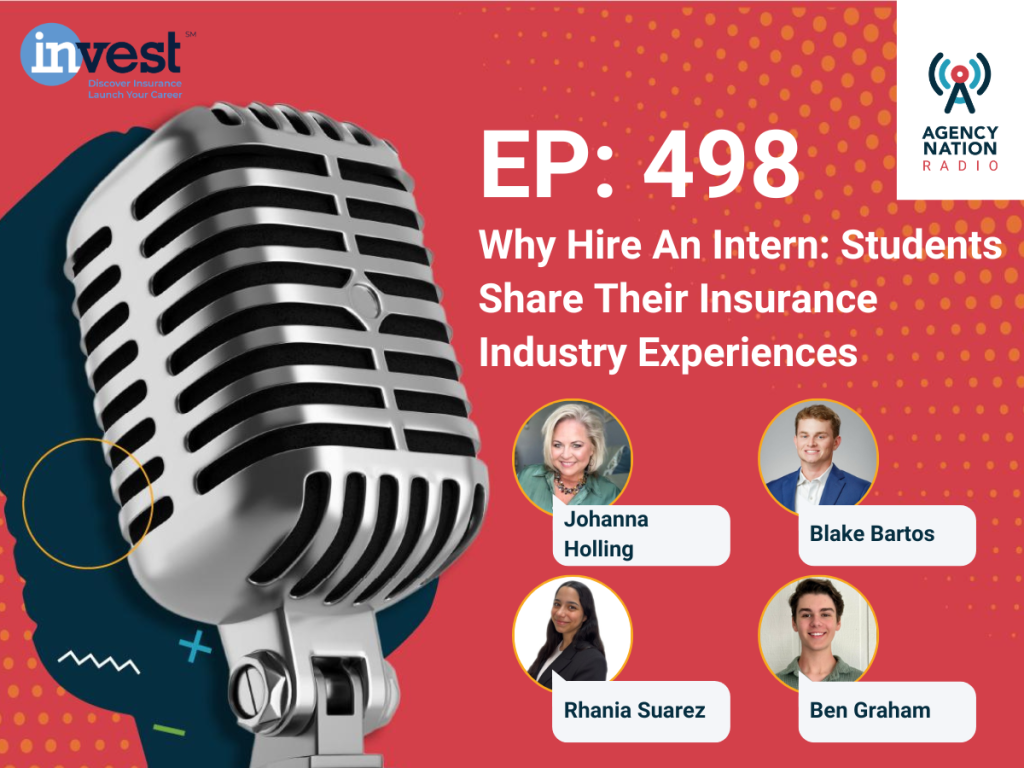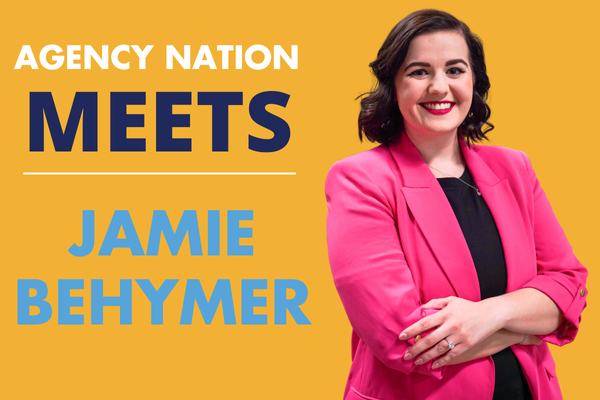Road to Riches: Providing a Path to Producer Validation

By: AnneMarie McPherson Spears
As an independent insurance agency that’s been around for over 100 years and maintains a commitment to being privately held, the mindset of The Mahoney Group in Mesa, Arizona, is simple. “We have to be an ‘infinite organization,’ which means we have to be willing to invest in perpetuation and profitably grow if we’re going to stay privately held,” says Steve Goble, chairman, CEO and president of the agency.
The Mahoney Group is structured as an employee stock ownership plan (ESOP), sharing profits with employees every quarter. Also, it hires 12 to 15 new—as in, new to the industry—producers a year.
Investing in employees “is a big part of our organic growth strategy,” Goble says. “So then the question is, how do we manage that?”
One way to attract and keep the talent required to maintain an infinite organization is by having a strategic model for helping new producers validate, which is when an agent’s production as measured by commission is equal to the cost of paying them.
An agency’s average validated producer age, as well as the stats around investment in new producer growth, can be good gauges of perpetuation health. Even among 2023 Best Practices agencies, the average age of a validated producer, known as WAPA (weighted average producer age), is 49.6, an increase from 48.6 in the 2022 study.
“The retirement rate is going to be huge over the next several years, so now’s a great time to get in—we’re going to have a lot of really wonderful, quality, top professional insurance folks retiring in the next few years,” Goble says.
As seasoned producers reach retirement age, investment in new ones is crucial for agencies that are looking to grow. Net investment in unvalidated producer pay (NUPP) measures what an agency’s unvalidated producers were paid versus what they earned. It is calculated by taking the difference between what an agency pays its unvalidated producers and what the producers would earn under the agency’s normal commission schedule and dividing it by net revenue, according to the 2023 Best Practices Study by the Big “I” and Reagan Consulting.
Among 2023 Best Practices agencies, NUPP leapt to 2.0% of net revenues, compared to 1.1% in the previous year’s study. A NUPP investment of 1.5%-2.0% is healthy, according to the Best Practices Study, indicating that the agency has increased investments in new business engines—a strategy that will also improve valuation and perpetuation.
Hiring a new producer is an investment in the health and longevity of an agency, so it makes sense to have a plan for that investment to pay off. However, failure is expensive.
Roadblocks to Riches
The road to producer validation is littered with potholes and has more than its fair share of hairpin bends. The producer success rate among Best Practices agencies averaged 45.5% across all revenue categories in the 2023 Best Practices Study, meaning that even among the cream of the crop, less than half of producers are validated.
Several challenges can impede producer success. “Being a producer isn’t a good fit for everyone. It takes a unique blend of technical and interpersonal skills as well as specific personality traits,” says Brian McNeely, executive vice president and partner at Reagan Consulting. However, many gaps in producer behavior can be chalked up to agencies “failing to help some of the producers they hire to be successful,” he says.
“The agencies with the most successful recruiting and development approaches have made it a part of their culture with recruiting, evaluation, training, mentoring and accountability,” McNeely says.
Additionally, mismatched expectations and a lack of patience can create friction. “Every agency says they need producers. And yes, they do,” says Kevin Wheeler, consultant at Angela Adams Consulting. “But if you’re needing an immediate return on investment, you’re essentially saying, ‘What do you mean you didn’t hit your sales goal this month? It’s your first month, you’re just learning the industry and you just got licensed—what’s wrong with you?'”
“Both parties need realistic expectations,” Wheeler continues. “Do you have the infrastructure and the budget to handle a new producer? If not, you’re just causing more chaos and frustration than what you’re ready for.”
Among small and midsize agencies, there can be a failure to recognize they need “to put the resources toward that producer,” Wheeler says. “I’m talking about a mentor or coach, someone to hold the person accountable.”
Another challenge is that agencies don’t put in the work on the hard numbers, he continues. “An agency will go around and ask others, ‘Hey, what are you paying your producers? Oh, that must be what I need to pay.’ That’s the worst way to come up with a formula for how much to pay. An agency’s got to take a hard look at their budget and make sure that they factor a profit into paying a producer.”
When agencies fail to invest the time and energy into helping a producer reach their potential, new producers can be left with a fuzzy sense of direction and develop deficiencies that can ultimately impede them from validating.
Among her recent conversations with clients, Susan Toussaint, vice president, ReSource Pro, notes “a disconnect between what the producer thinks the role is and what the role requires of them to be successful.”
“Producers think that if they’re licensed and know insurance, they’re good to go—but there are a lot of small actions that have to happen in order to validate,” Toussaint says. “One is they have to become known and position themselves out in the marketplace, and we’re seeing more and more producers struggle with the idea of being out there. They’re either not encouraged to or they don’t have that behavior modeled to them.”
Additionally, “in order to close business, they have to have an effective process that’s going to lead a buyer away from traditional insurance and risk management purchasing, which is bidding and quoting. In order to create a new customer, they have to do a good job at helping people make change decisions,” she says. “We’re not seeing enough producers understand the buyer mindset and how buyers buy.”
Producers also must be able to “grow share of wallet,” Toussaint continues. “Once they write a new client, they need to be able to expand that relationship. We’re seeing more and more producers struggle with the concept of looking at a client holistically.”
Are We There Yet?
Guiding a new producer toward validation requires several resources, including—wait for it—patience. But the question is: How long should an agency be patient?
Of course, the answer is: It depends. “Not only does it depend on the compensation model, it also depends on the investment in the producer—and compensation’s only one investment,” Toussaint says. “If we’re talking about a brand-new producer who is new to the industry and new to selling, it’ll probably take a full three years if the agency is investing in a curriculum of training that builds business acumen, insurance and technical acumen, and selling skills.”
The Mahoney Group’s philosophy is similar. “They have three years to succeed but not three years to fail,” Goble says. “We have a strong culture with certain values; we have certain behaviors that we expect, and certain outcomes that come with that. Are they a team player? How do they interact with others? Do they help others? Are they coachable?”
In fact, McNeely has a theory that “most firms know within six months to a year whether or not a producer’s going to make it,” he says. “That doesn’t mean they validated, it just means they’re doing the right things that will result in success in the future.”
The key to evaluating a producer’s progress in the validation journey is that they’re engaging “in the right activities,” he continues. “Are they making a certain number of calls? Are they actively trying to get at-bats and appointments? When they’re setting up appointments, are they actively reaching out to more experienced people to help them prepare for the meetings? And if they aren’t able to close a transaction, are they able to start over again with continued tenacity?”
“If they’re lagging in financial numbers but doing everything right and picking up speed, then it’s just an opportunity for us to come alongside and help them across the finish line,” Goble agrees.
Mick Hunt, president and CEO of Premier Strategy Box and a former agency owner, plans for a 24- to 30-month validation period, depending on how well established the new hire was in their niche market before they started the job. “I didn’t expect a producer to write or bind a policy for the first six months. I expected every producer to go into a niche, and validation was about how fast the producer could get ingrained in their niche market,” Hunt says.
Roadmap to Validation: Before You Hire
The success of new producers is key for independent agencies’ organic growth and longevity but requires significant amounts of time and energy. Positioning that investment for the best returns is a no-brainer.
“If you’re paying them a decent wage on day one, and typically it takes years to break even on a producer, that means you’re losing money for a year or two, maybe three,” Goble says. “And then, when you think of the soft costs, with service people helping them, insurance professionals and markets—with all those touchpoints, the hard cost is just the tip of the iceberg. Knowing it’s expensive to fail, take the time upfront to build your model.”
A lot of validation legwork should take place before the new producer is hired. Here are six steps agencies can take in the planning and interviewing stage to up the chances of validation:
1) Determine your compensation model. “Make sure you have the funds to actually hire a producer—meaning, if you hire someone, you can pay them,” Hunt says.
But how do you determine which compensation model is best? “What are your profit goals?” Wheeler asks. “Don’t try to mimic what another agency is doing—it’s a good guide, but you need to run the numbers to see what you can justify and afford, and then map it out.”
“Consider what happens if you were to pay 25% on new business, compared to 50% but there’s no budget room for support so the producer must do all the paperwork and marketing themselves,” he continues.
A commission plan should take into careful consideration what behaviors should be rewarded or emphasized, according to an episode of “The Digital Broker” podcast from Indio. Hosts Steve Anderson, CEO and co-founder of Catalyit, and Ryan Deeds, product owner of Ennabl, point out that a higher emphasis on retention, such as by paying 30% on commission for renewals versus 15% for new business, can incentivize producers to sit on their books and fail to prospect.
“You need to have a compensation structure that incentivizes growth and retention,” Goble agrees. Conversely, a disproportionate commission on new business with no parameters around retention can lead to an agency shelling out a huge commission with no guarantee that the business will be retained long enough to recoup the cost.
2) Be realistic about your training capabilities. “If a firm is not really into development and mentoring, it’s going to be hard to hire somebody right out of college,” McNeely says. “However, if your agency has an intern program and a training program and a mentoring program and everyone’s bought into them, then the agency will have a broader range of the talent pool.”
3) Align support infrastructure. “Do you have the staffing in place to support a new producer?” Wheeler asks. “Is your staff already drowning and can’t find time to work renewals because they’re putting out fires every day? If you’re not positioned with staff, it’s doomed to fail.”
Technology is another key aspect of support. “You’ve got to have a solid agency management system (AMS) that can produce data that can be used to understand what drives your business,” says Jamie Peers, vice president of business development and alliances at Synatic. “And put good data hygiene practices in place, as well as a good data cleaning process.”
4) Identify niches to grow. An agency’s goal for hiring a new producer may be to expand into a specific niche. Or, a new producer might have the freedom to develop into a list of options the agency is equipped to support. Either way, it’s crucial that expectations align on which niches are on the table.
If a candidate has “a strong niche they want to focus on but you don’t have the markets or expertise to support that niche, can you ramp up the expenses to get the support staff and the technology? Can you get those markets in this current hard market?” Wheeler asks. “If you can’t support that person, they’re going to starve, and they’re going to leave.”
5) Build a strategic interview process. “That’s really the challenge right there: understanding the individual and what’s driving them,” says Jon Axel, president of retail property & casualty at The Liberty Company Insurance Brokers, a national, privately owned insurance brokerage with flagship offices in California. “Are they going to be a culture fit? We usually do multiple interviews with multiple levels of people.”
“Most agency owners are no judge of people, and I’m looking in the mirror when I say that,” Wheeler, who used to be an agency owner, says. “When an interview I had with a new producer went phenomenally, I turned it over to my top staff to do the second interview, and then I got out of the room. A lot of things would come out in the discussion that the particular candidate wouldn’t tell the agency owner in private.”
Testing, both for technical acumen and personality profile, can also offer guidance on a candidate’s fit with the role or the agency. But one area that’s not tested enough is “difficult conversations, confidence in leading dialogue and confidence in asking questions,” Toussaint says.
She recommends role-playing exercises during the interview process. “If their role is to produce, they need to be able to lead a CEO and help that CEO recognize their past insurance decisions and risk management decisions may be actually be hurting them,” she says. “While they may not have the technical acumen yet, they should be able to demonstrate through roleplaying that they’re comfortable with uncomfortable conversations.”
6) Set expectations. Determining key performance indicators (KPIs) beforehand is crucial to avoiding mismatched expectations. “Before hiring, make sure you know every KPI you’ll measure the producer by, so in the interview process you can discuss them,” Hunt says.
Success Strategies: After the Hire
Now that the producer is hired, the rubber really meets the road. But often, there’s a significant disconnect between the desire to have people validate and the tasks the organization requires of the new producer, Toussaint says. “An agency will bring on a producer, but then burden them with activities that are not aligned with the goals of helping them gain technical acumen and grow existing accounts. They’ll burden the new producer with being responsible to answer the phone for the office or doing service work.”
“There has to be a culture in the agency that says, ‘Producers produce—this is what we want you to produce, and this is the manner in which we want you to produce,'” she continues.
“The overall success of an agency depends on a good culture that doesn’t diminish new personnel without proper guidance trying to see who works,” says Scott Freiday, division director of InsurBanc. “That can look like good comradery and people working effectively among the various departments in the agency, as well as the provision of dedicated training and support on systems and technology in the agency.”
A culture that does not support validation could look like “an attitude of unhappiness with the way the agency’s being managed, making it an inefficient operation,” Freiday adds.
How do you create a healthy culture? It comes down to support, from systems and carriers to selling techniques and effective communication. And designing a formal process to guide producers to validation is a great way for agencies to walk the talk.
“I would hope that if a business is going to extend an employment offer to somebody, they have the appropriate infrastructure, resources and support to help them be successful. If not, then it’s really just ‘Maybe they make it, maybe they don’t,'” Goble says. “One of the reasons we have worked hard to create a solid model is because we feel that the only way we can honor the person we’re asking to come and take the employment journey with us is to have a robust support system and process that will help them be successful.”
Here are five components an agency should incorporate into a program to set the new producer up for success:
1) Structured training. A strategic training program is key to building a culture that nurtures validation. “The first few months that a producer starts working for us, their full-time job is to get educated,” Goble says.
“There are two subcomponents to training: technical and sales,” McNeely says. “The most successful training courses that we’ve seen are where agencies have taken in several different sales theories and sales courses and blended them together to create a methodology that fits their firm’s structure, geography and clientele.”
In concert with another organization, The Mahoney Group actually created an education platform for new producers. “In the first three months, the bulk of what they do full-time is technical training, as well as some sales training,” Goble says. “We give them an educational foundation that, once they get through that phase, they’ll be competent and confident enough to have conversations with prospects or clients in which they create value.”
2) A niche—or two. “It’s really hard to be everything to everybody, so we encourage agencies to have producers pick two specialties,” McNeely says. “Specialization is crucial for the independent insurance agency and brokerage channel going forward.”
In another way of viewing niches, “we help our folks pick a major and a minor,” Goble says. “Sometimes they have a natural niche area—maybe they come from the medical industry or the construction industry—but we help them pick two areas that have opportunities and in which we have the appropriate insurance markets to serve that area, the appropriate service team, and more experienced folks who can mentor them.”
By definition, picking a niche means excluding other areas. “A business is defined by what it says ‘no’ to,” Peers says. “There is such a thing as bad revenue. If your objective as a business is to grow revenue and manage costs, it can be very difficult to think about the fact that there are things that grow revenue that are bad for business because they distract you from what the core of the business is.”
A common temptation is to encourage a new producer to be a jack-of-all-trades, but “if you have a mindset of ‘they’re new, they’re young, they can write any business that comes in over the transom to cut their teeth,’ it’s really difficult to then shift their mindset later,” Toussaint says. “And they will have a hard time competing against more specialized producers.”
3) Business plan. It’s not enough to have identified areas of specialization. New producers must also develop a business plan that involves “how you’re going to build a book of business and validate, that says ‘This is my target market, this is how I’m going to become known in that market, these are the activities that I’m going to follow,'” Toussaint says.
While agency owners, as entrepreneurs, must demonstrate a business plan to a bank to get a loan, “producers are intrapreneurs,” Toussaint says. “They don’t have to worry about whether the lights will stay on or whether their account manager is paid, but they do need to be able to demonstrate why the agency principal should continue to invest in them.”
At The Liberty Company, “we work with our producers to identify a business plan, and it’s a basic worksheet of what your goal is and how you’re going to get there,” Axel says. “They write down their centers of influences, their ideal client criteria and how they plan to connect with prospects.”
That business plan is updated every year, but on a more regular basis, “we look at that plan every quarter,” Axel continues. “That way we know what’s going right, what’s not going right, and where they need support.”
4) Performance metrics. “Are they doing the things they need to do? Whether it’s being active in associations, making calls or doing follow-ups,” Hunt says. “Those are all metrics I would track.”
“You have to be specific with your expectations, as well as the repercussions of not succeeding and the benefits of succeeding,” Peers says. “And there has to be an ongoing process of discussing our learnings and what we can improve next time.”
To monitor KPIs—yes, those ones that should have been defined and communicated in the pre-hire phase—Peers points out the importance of data being fed to the right person. Agencies should look for an AMS system that is capable of generating an analysis of data that can be regularly pushed to the producer or their supervisor. It’s ideal if the reports are non-static, he says, meaning that instead of a spreadsheet record that must be pulled manually, a report can be refreshed with new data automatically so answers can be found quickly and easily.
“It’s not just the data, it’s also the metrics against which that data is measured,” Peers adds. “If a producer closed out $100,000 of policies this month, cool! But you also need to understand how to measure what the employee needs to deliver. What is the target or goal? That needs to be reflected in the data reports.”
5) Mentorship and coaching. Whether it’s a mentor, coach or accountability partner, the guidance of a more seasoned producer is another crucial way agencies can support new talent. “All our producers report to a managing partner,” Axel says. “It’s very important to have that human connection, especially with a lot of people working remotely.”
On the most granular level, an accountability system should ensure the producer is meeting the KPIs and behavioral expectations that should have been determined and clearly communicated before the hire. That can be accomplished with a scheduled, structured coaching relationship that can identify gaps in training so any adjustments in expectations can be made.
“You can’t say six months from now, ‘Well, they never made their target numbers, so they’re gone,'” Wheeler says. “You didn’t keep your eye on the ball. You need to be committed—validating a producer requires somebody on top of it weekly.”
The Mahoney Group has a full-time director of training and support whose job is to help new producers through the education process and review their work, “so when they’re engaging with prospects, he’s reviewing applications and quotes with them for teachable moments,” Goble says. “We align them with mentors that are partners in our firm, and specifically try to align with the same specialty or practice. That way they get a seasoned producer’s view on life.”
Mentoring also addresses an overlooked aspect of producer success: mindset. “You have to understand who you are, what your strengths are, and do a significant amount of inner work,” Axel says. “Producing isn’t just about a sale, it’s about leadership. At The Liberty Company, we help our producers do that inner work.” Axel holds a regular meeting with his sales team called, “Sales from the Inside Out” to help them think through important skills such as emotional intelligence and leading a team.
Mentorship is important for the producer, but sometimes an agency itself might need a guide when looking to improve validation rates. If an agency is struggling, Goble recommends learning from other agencies that support their staff well. “The Big ‘I’ is a great peer group—contact your local executive or even national staff and ask, ‘Within this space, who would be willing to share what they’re doing?'”
He points out that a good idea may be to contact a Big ‘I’ state association in a different state, so it can offer an agency that is willing to share processes and learnings without reservations about overlapping business territory.
“Just learn from other people,” Goble says. “The goal is success for the individual producer and the firm at large. How much time, energy and effort are you willing to put in to be successful?”
AnneMarie McPherson Spears is IA news editor.
Producer LoansInsurBanc, formed slightly over 20 years ago by the Big “I,” offers producer loans to support agencies while they validate a new producer. “It’s a term loan that begins with an interest-only component,” Freiday says. “Typically, it begins with 12 months of interest-only payments, followed by three or four years of payment of principal and interest.” An agency that wants to hire a new producer could obtain a producer loan from InsurBanc to “cover the new producer’s pay for the first year, as well as some ancillary expenses,” he says. In a competitive hiring market, “it’s a way for the agency to bring in talent—that way, if the producer had some other offers, the agency can offer a salary,” he adds. The loan can also be used more generally to support the agency’s growth. “It could be combined with other uses, such as building out technology, upgrading their AMS or building a new office space for the new producer—all of that can be financed,” Freiday says. —AMS |











